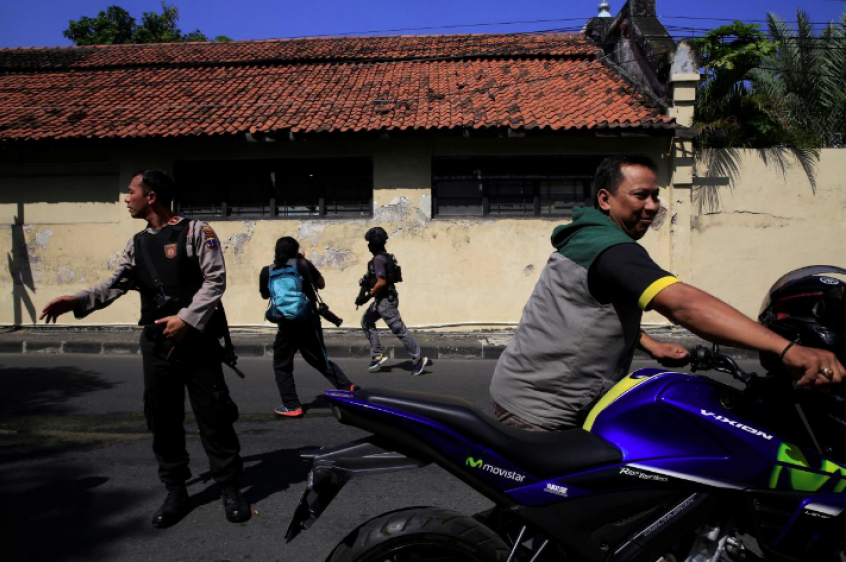
Indonesian authorities have revealed that the three families that carried out the suicide bombings that killed at least 26 people were all part of the same religious study group which radicalized them.
One family of six carried out separate attacks on three churches on Sunday morning just before the services began.
Dita Oepriarto, the father, detonated a car bomb outside a church, while his wife, Puji, conducted an attack at another church with his two daughters, aged 9 and 12. Two of his sons, aged 16 and 18, rode a motorcycle into the courtyard of another church before detonating their bombs.
Multiple explosions were heard in an apartment in Sidoarjo later that evening. Three members of a second family were reportedly killed in the blast, which police believe to be the result of bombs detonating prematurely.
Another family had conducted a separate attack at the Surabaya police headquarters on Monday morning, leaving an eight-year-old girl as the only surviving family member.
According to Ch. Insp. Machfud Arifin, all three families attended weekly study sessions, where they learned about Islam and watched jihadist films every Sunday evening.
The police chief asserted that the films were aimed at encouraging participants of the study group to carry out terrorist attacks.
"The Surabaya cell and the Sidoarjo cell are the same network because they met regularly on Sunday evening," Arifin said, according to The Guardian.
The families are believed to be part of the ISIS-inspired group Jamaah Ansharut Daulah (JAD). Authorities believe that the families behind the suicide bombings wanted to be easily identified as they carried their national ID cards with them.
The study sessions were thought to be held at the Surabaya home of Dita Oepriarto, who is believed to be the head of the Surabaya extremist group.
Arifin noted that the children of the three families were radicalized through homeschooling. "What happened is their parents indoctrinated the children. So when the mother asked them to wear the waist bombs they did it," the police chief said.
Neighbors have said that the Oepriarto family belonged to the upper-middle class and had shown no signs that they planned to commit terror attacks.
Raith Yunanto, a Christian who lives two houses from the Oepriarto family, had said that she had been on good terms with them, and even went shopping with the wife at the local market on one occasion.
"It's difficult for us to accept how they can commit such a barbaric act against Christians. The couple visited me when I gave birth and when my children were sick," Yunanto said.













